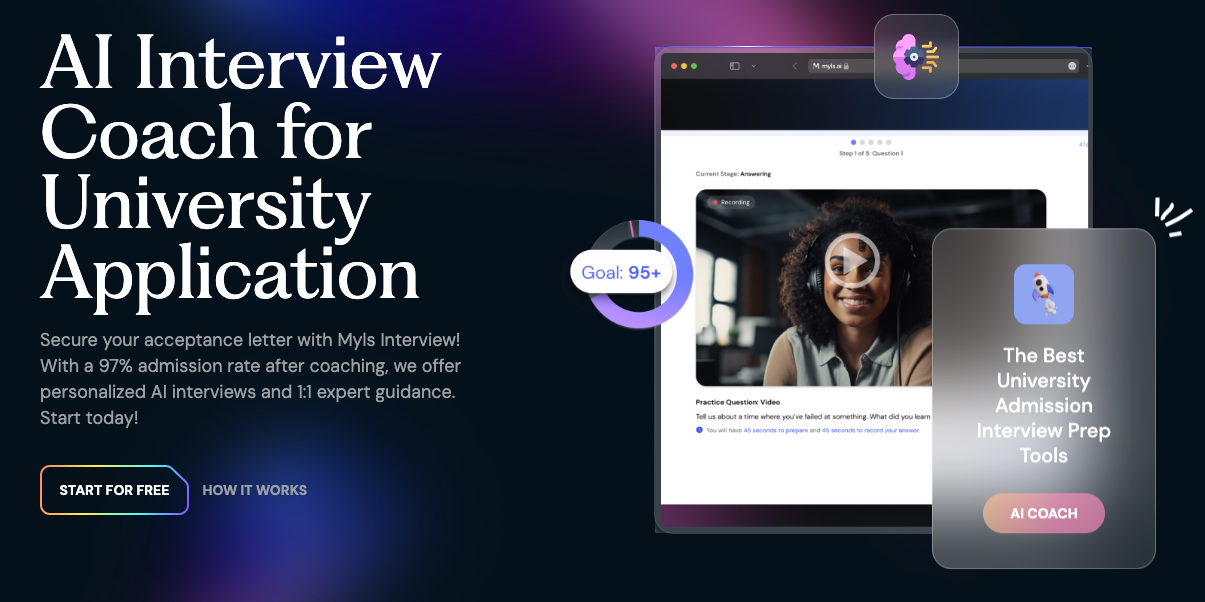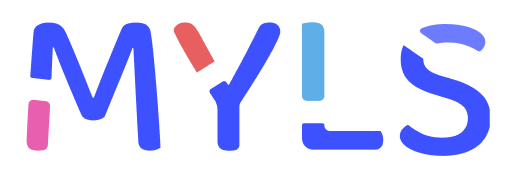How to Strengthen Your University Application for Health Sciences, Medical, and Nursing Programs
Health Sci, medical, and nursing programs are among the most competitive in Canada. This blog breaks down what schools are really looking for, how to craft your application strategically, and how Myls Interview mentors help students plan, reflect, and stand out.

Every year, tens of thousands of high school students apply to Health Sciences, Pre-Med, or Nursing programs across Canada. Many of them have stellar grades, advanced science courses, and a long list of extracurriculars. But only a small percentage receive offers from top-tier programs like McMaster Health Sci, Western Med Sci, Queen’s Nursing, or UBC Kinesiology. Why?
Because these programs aren’t just looking for academic excellence. They’re looking for future healthcare leaders—students who think critically, reflect deeply, and act with purpose. They want applicants who don’t just want to get into medical school someday, but who understand what it means to work in health care, who have experienced challenges, and who are prepared to grow.
So how do you set yourself apart in one of the most competitive application pools in the country? It takes more than grades and good intentions. It takes strategy, self-awareness, and mentorship.
Why These University Applications Are So Competitive
Health-related programs are among the most selective in Canada because they are direct-entry pathways to high-impact careers. Programs like McMaster’s Bachelor of Health Sciences admit fewer than 5% of applicants. Nursing programs at Queen’s, TMU, and U of T receive thousands of applications for limited seats. These health-related programs are designed to shape the next generation of researchers, practitioners, nurses, and health innovators—and they begin screening for mindset and maturity right from the application stage.
Unlike standard university programs, Mcmaster Health Sci and Queen's Nursing applications often include supplementary applications' components such as essays, video interviews, or assessments like the CASPer test. These are not add-ons—they are central to how schools evaluate fit. They help university admissions officers assess not only how well you perform academically, but how well you communicate, reflect, collaborate, and think under pressure.
What Top Programs Are Really Looking For
Yes, a high GPA is essential. But once you meet the academic cutoff—usually in the high 80s or 90s—the differentiators become less about numbers and more about narrative. What story does your application tell? What kind of student—and future professional—do you seem to be?
Strong applicants demonstrate a combination of intellectual curiosity, commitment to service, and maturity. They aren’t just involved in health-related clubs or hospital volunteering. They can explain why those experiences mattered, what they learned, and how it shaped their desire to pursue a career in healthcare.
In written personal statements and video interviews, schools are looking for signs of integrity, critical thinking, empathy, and insight. Can you connect your past experiences to your future goals? Can you speak honestly about a challenge or failure and what it taught you? These answers can’t be faked or rushed—they come from thoughtful preparation and self-reflection.
How to Build a Strong, Aligned Application
A compelling health or nursing application doesn’t happen overnight. It’s the result of decisions made over several years—academic choices, extracurricular priorities, and meaningful reflection. Students who stand out are not just well-rounded—they are well-directed.
Academically, it's essential to take the right courses and perform well in them. This means maintaining high marks in Grade 11 and Grade 12, especially in Biology, Chemistry, Math, and English. Beyond that, course planning should allow for balance—taking on an overloaded schedule may backfire if your grades or wellbeing suffer. Some students opt for summer school or online courses to make room for key prerequisites or lighten their regular workload.
Outside the classroom, schools want to see consistent, meaningful involvement. Volunteering in healthcare settings is valuable, but what matters more is what you’ve done with those experiences. Did you take initiative? Did you step into leadership roles or find new ways to contribute? Did you engage in research, community outreach, or peer education? Every activity should have a clear narrative of growth and purpose.
Reflection is where average applicants get filtered out. Many students list hours of volunteering, but few can explain what they learned or how it deepened their understanding of the healthcare field. Keeping a simple journal or reflection log during high school helps students capture these insights in real time—and makes writing essays later much easier and more authentic.
Common Pitfalls in Health and Nursing Applications
The most common mistake students make is assuming that grades and a list of activities will be enough. In reality, many applications fail not because the student lacks credentials, but because their application materials lack focus, clarity, or depth.
One frequent issue is the use of generic language. University Admission officers read thousands of statements that begin with “I’ve always wanted to help people” or “I love science and want to work in healthcare.” These ideas might be true, but they aren’t enough. What makes your story personal, specific, and memorable? The strongest responses use real experiences, honest reflection, and clear connections to show—not just tell—why the student is a fit.
Another issue is poor preparation for interviews or CASPer tests. These university supplementary application assessments are designed to evaluate communication, ethical reasoning, and interpersonal awareness—not content knowledge. Students who don’t practice under timed conditions, or who answer with rehearsed clichés, often underperform.
Finally, students sometimes apply to programs they haven’t researched. Every Health Sci or Nursing program has a different focus. McMaster's Health Science uses Problem-Based Learning. Queen’s Nursing emphasizes interprofessional collaboration. U of T’s Life Sci is broad and research-heavy. If your university application doesn’t speak directly to the values or structure of the program, it will feel shallow or disconnected.
Why Mentorship Is Essential in This Process
Applying to competitive health programs is not just about working hard. It’s about working smart—knowing where to invest your energy, what to focus on, and how to tell your story effectively. That’s why mentorship is one of the most powerful tools you can have.
A great mentor helps you identify your strengths, clarify your goals, and shape your experiences into a compelling narrative. They challenge you to reflect more deeply, to avoid shortcuts, and to make your application authentic. They bring insider insight into what programs really want—and what typical applicants overlook.
Mentors also provide structure. When deadlines are looming and every draft feels high-stakes, it helps to have someone who can break the process into manageable steps. Whether you’re brainstorming supplementary application essay topics, preparing for mock interviews, or building a balanced course plan, a mentor keeps you accountable and focused.
Most importantly, a mentor gives you perspective. When the process feels overwhelming or competitive, they remind you of the bigger picture—who you are becoming, and why you’re doing this in the first place.
How Myls Interview Helps Students Apply Strategically

At Myls Interview, we’ve supported students applying to Canada’s most competitive Health Sciences, Medical, and Nursing programs—including McMaster Health Sci, Queen's Nursing, and top MD programs across the country. We understand what makes a strong applicant—and how to help students build the skills and strategy they need without burning out.
Our mock interview platform combines personalized mentorship with smart AI-driven mock interview tools to make every part of your university application work harder for you.
What Myls Interview Offers:
1-on-1 Mentorship and Goal Exploration
Work closely with experienced mentors who help you reflect on your motivations, map out your future goals, and articulate your story in a way that feels both authentic and aligned with competitive admissions.
Strategic Academic and Application Planning
Plan your prerequisites, extracurriculars, and university application timeline with guidance from mentors who’ve helped students succeed in Health Sci and pre-med tracks—so you stay focused without feeling overwhelmed.
Personal Statement and Essay Coaching
Our mock interview platform includes structured mock interview tools and personalized AI feedback to improve clarity, tone, and narrative flow. Whether it’s a supplementary application essay, personal statement, or AIF, we’ll help you shape compelling, program-specific responses.
Mock Interview Practice + CASPer Simulations
Use our AI-powered mock interview platform to rehearse MMI, panel, and CASPer responses under real interview conditions. Get instant feedback on structure, delivery, and reasoning—plus personalized coaching to sharpen your answers.
School-Specific Alignment Tools
Tailor your responses to reflect the values and expectations of your target programs. We help you connect your strengths and experiences to what each school is actually looking for—so your message feels relevant, focused, and persuasive.
At Myls Interview, we don’t just help you check boxes—we help you become a more confident, self-aware, and strategic applicant who’s ready for the academic and personal challenges ahead.
Start preparing smarter with Myls Interview—sign up for free and get personalized support for your Health Sci, Nursing, or Medical school application.



